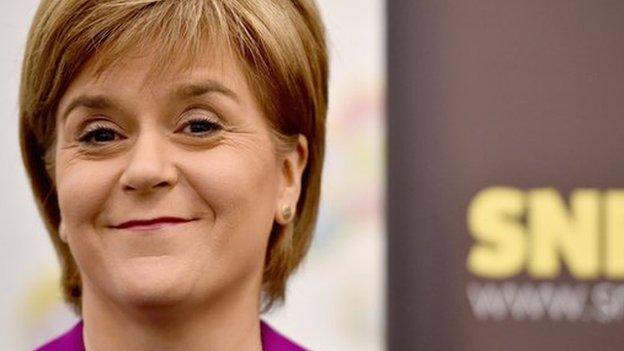Election 2015: Labour and SNP in tax 'black hole' row
- Published
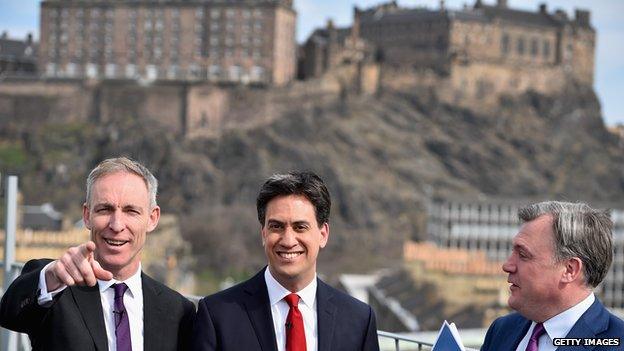
Labour insist there is plenty of time for them to make up lost ground in Scotland
The Scottish National Party's aim to have full control of tax in Scotland would create a £7.6bn financial "black hole", Ed Miliband has claimed.
He said the SNP's economic plans would have a "devastating" impact on Scotland.
The SNP says Labour is "simply making this up", with leader Nicola Sturgeon citing the usual "fears and smears".
The Tories say Mr Miliband's comments show the SNP is "pulling Labour's strings".
In other election news:
The Conservatives pledge three days paid volunteering leave a year for up to 15 million workers and no above-inflation rail fare rises until 2020
Labour say they will protect neighbourhood policing in England and Wales and ensure that forces will not have to cut officer numbers
The Lib Dems pledge a new scheme to help young working people borrow up to £2,000 from government to put towards a tenancy deposit
Three opinion polls published on Thursday give Labour a lead, ranging from three to six points, while two others put the Conservatives ahead by one
The Trade Unionist and Socialist Coalition launches its manifesto at London's Canary Wharf, promising to field more than 130 candidates
A UKIP candidate is to be questioned over allegations he tried to influence voters by giving away sausage rolls at a party event
Labour has been trailing the SNP in the polls in Scotland for months and, as Mr Miliband arrived in Edinburgh to deliver his speech, a YouGov poll for the Times, external suggested Labour could be on course for its worst result in about 100 years.
It put the SNP on 49%, with Labour on 25%, which - if borne out on 7 May - would leave Labour with only a handful of Scotland's 59 seats and significantly harm the party's chances of a Westminster majority.

Analysis by BBC Political Correspondent Iain Watson
Ed Miliband is usually most comfortable attacking opponents to his right.
But in the shadow of Edinburgh castle, Mr Miliband claimed today he had found a chink in the centre-left SNP's armour.
Nicola Sturgeon said she wanted full fiscal autonomy as soon as possible.
So Labour have latched on to a recent analysis by the independent Institute for Fiscal Studies suggesting that with a lower tax base than the UK as a whole - and volatile North Sea oil revenues - there could be a gap of more than £7bn in the Scottish budget.
This allows Labour to say - look, the SNP are an austerity party too because they would have to make cuts to close this chasm.
But Labour have to be careful of how they advance the argument - the SNP say they are facing more "fears and smears" from their opponents.
And if Labour are, in part, being punished for too negative tone during last year's referendum campaign they will have to mix a negative attack on Ms Sturgeon's plans with a positive vision of Scotland's role in the UK.

However, Mr Miliband attacked SNP plans for the Scottish Parliament to take control over all taxation in Scotland, known as full fiscal autonomy. He said this would mean the end of the Barnett formula, the mechanism used to distribute government funds across the different nations of the United Kingdom, and leave a £7.6bn "black hole" in Scotland's finances.
"Which services will be cut? Which taxes will be raised and what cuts will it mean for pensioners in Scotland when they are taken out of the UK pension system?" he asked.
Mr Miliband said the SNP's claims that they would end "Tory austerity" were false and that they would actually "extend" it because their plans for fiscal autonomy would cut Scotland off from sources of UK-wide revenue and increase its pension liabilities.
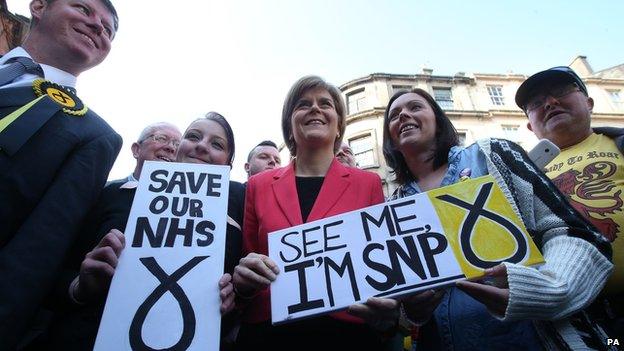
The SNP say full fiscal autonomy would place Scotland's destiny in its own hands
SNP leader Nicola Sturgeon described his speech as "desperation" and her deputy, Stewart Hosie, told BBC News:" The Labour Party are simply making this up."
He said Labour's figures - taken from independent Institute for Fiscal Studies data - were based on the current financial year, and that tax control could not be transferred in that time.
Neither did they take into account the effect of SNP anti-austerity policies to grow the economy, Mr Hosie said, adding: "The only cuts which we know are actually coming to Scotland are the £30bn of austerity cuts from the Conservative and Liberal coalition which the Labour party voted for."

What is fiscal autonomy?
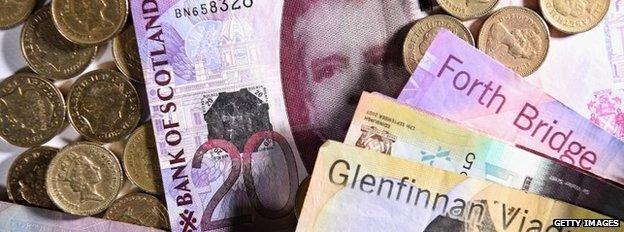
The SNP wants the Scottish Parliament to have control over all of taxation in Scotland.
For the shared costs of continuing to run the United Kingdom, it would pay Whitehall a portion of the takings - for defence, the Foreign Office, the Treasury and shared regulators such as Ofcom and Ofgem.
Those in favour say such a move would respond to public demand for more powers at Holyrood. They say it would provide the levers of power over economic policy that could help grow the economy faster. That includes targeted business tax breaks.
Those against say that it would leave a large gap in the nation's finances - a £7.6bn shortfall next financial year over and above a share of the deficit that the UK is already running.

Labour has ruled out a coalition with the SNP in the event of a hung Parliament, saying there are "big differences" between the two parties over a range of issues, including the extent of financial powers to be given to Scotland and the renewal of Trident.
The SNP, which has called for modest rises in UK spending in the next Parliament and made a number of spending commitments of its own, has said it is prepared to support a Labour government on a "vote-by-vote" basis, if Ed Miliband's party wins the greater number of seats in the Commons, but not an overall majority.
Such an arrangement, the Conservatives warned again on Friday, would give SNP the power "to sign off" all Labour's plans.
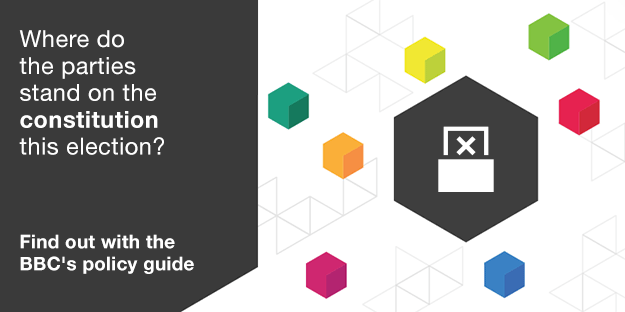
Tory Defence Secretary Michael Fallon said: "Ed Miliband's visit to Scotland shows that the SNP are already pulling Labour's strings."
"Nicola Sturgeon makes a statement, and the Labour leader rushes to Edinburgh to respond. If it's like this now, imagine what it would be like with the SNP propping up Ed Miliband in Downing Street."
The Liberal Democrats said that, in pressing for full fiscal autonomy, the SNP were "veering away" from an economic strategy "that has delivered 174,000 new jobs for Scotland and putting the recovery at risk".
Subscribe to the BBC Election 2015 newsletter, external to get a round-up of the day's campaign news sent to your inbox every weekday afternoon.
- Published10 April 2015
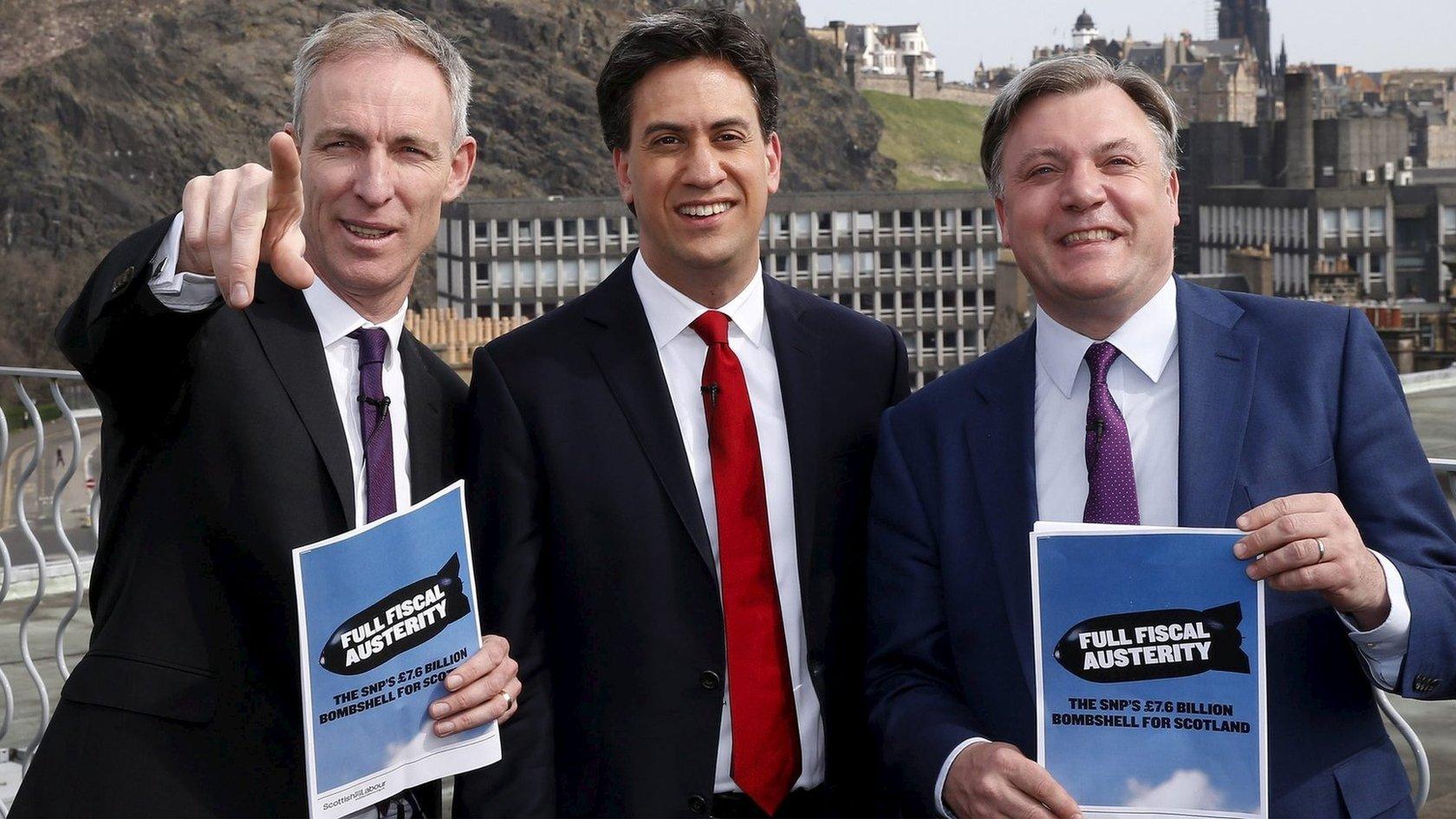
- Published10 April 2015
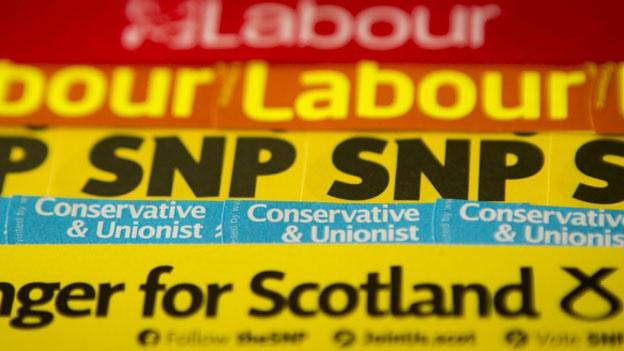
- Published10 April 2015
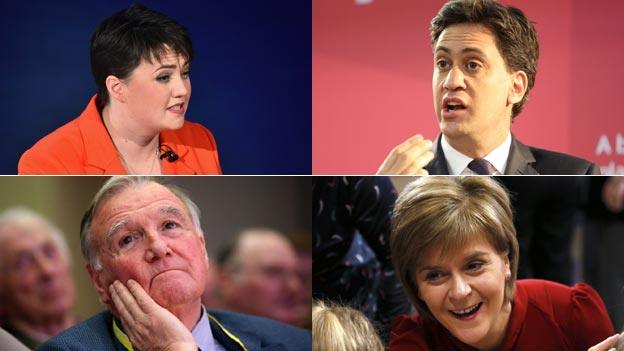
- Published10 April 2015
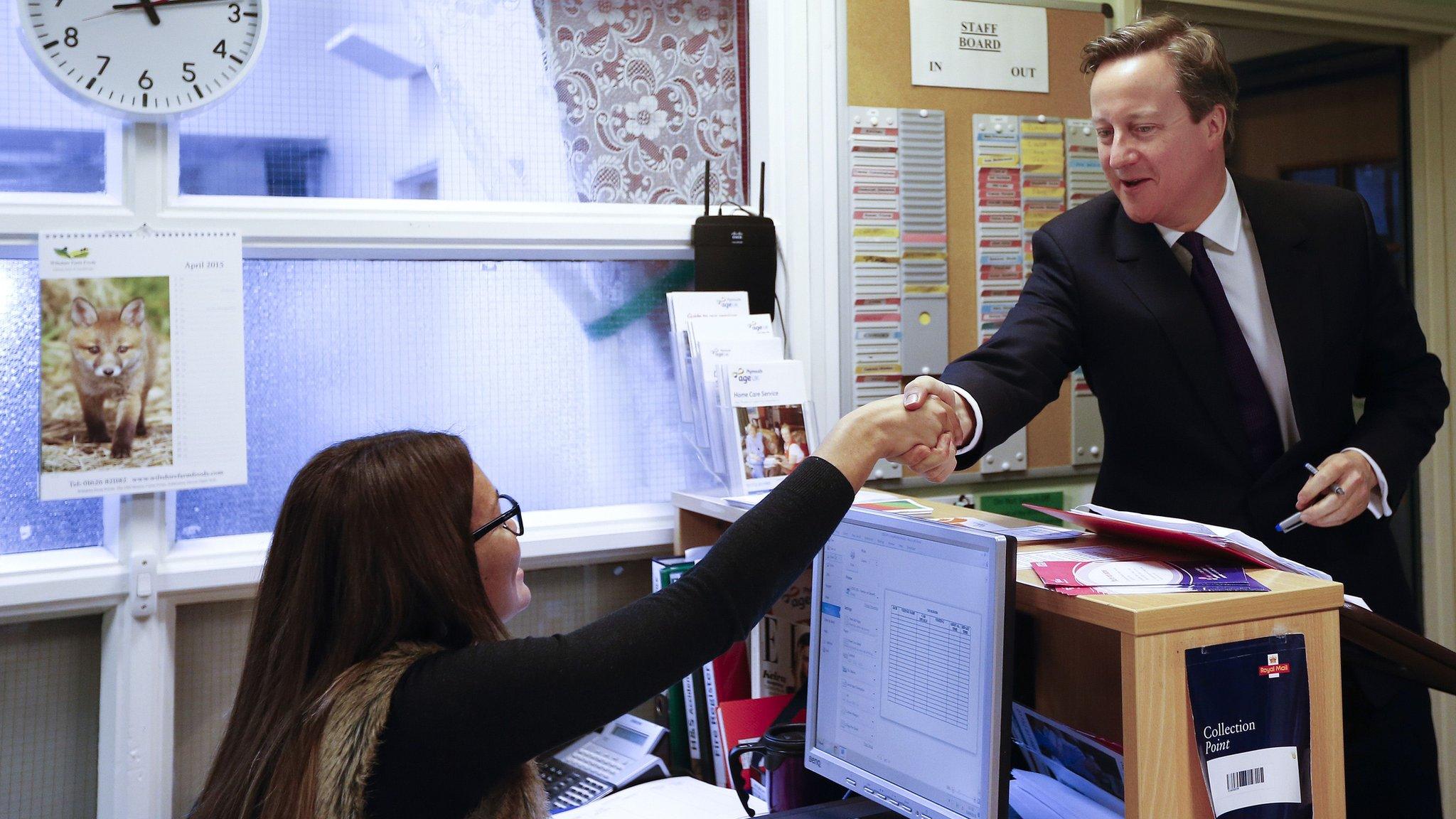
- Published9 April 2015
